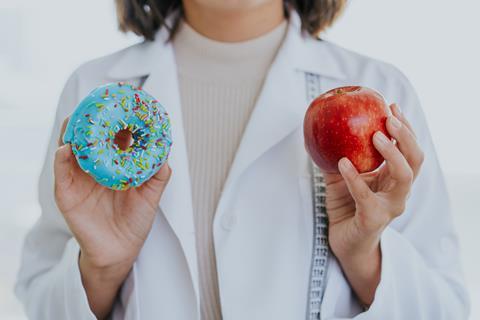
The ultra-processed food (UPF) debate is not black & white – this is the message from Mike Adams, head of product innovation at Campden BRI.
Speaking at the British Society of Baking (BSB) conference last week, Adams gave a presentation on the latest developments in the UPF conversation including an outline of the different classification systems and what they mean as well as how the conversation could impact the baking industry.
While several classification systems exist, Adams predominantly focused on the Nova system as this is the most widely known although, like the others, it “has limitations”. The system is as follows:
- Class 1: unprocessed or minimally processed foods
- Class 2: processed culinary ingredients
- Class 3: processed foods
- Class 4: ultra-processed foods
The conversation around UPF, he noted, is gathering “significant momentum and there are no signs of it slowing down”. Bread, particularly industrially made white bread, is often used as the poster child. However, he argued, it is the ingredients not the processing of a loaf (or other bakery products such as cakes or biscuits) which moves it from class three to four in the Nova system.
“Ultra processed foods are not necessarily defined by the process that the food goes through. It is the ingredients that go into it, so we’re really talking about ultra processed ingredients, not the food itself,” Adams said, pointing to additives and emulsifiers as examples of such ingredients.
Sign up for our free webinar: how are the UPF and clean label movements shaping bakery?
Using industrial bread to highlight his point, he argued that it doesn’t go through ultra processing simply “mixing, fermentation, and baking” as well as slicing and bagging – a sentiment shared by Andrew Pyne, chief executive of the Federation of Bakers. “None of those are all ultra processing, in fact they’re all things that you can do at home,” Adams said.
“A lot of people talk about the Chorleywood bread process being ultra processed but that just tends to show that people don’t really understand what the Chorleywood bread process is – it’s mixing it very fast with a bit of vitamin C. The pressure vacuum came in later and even then, does the pressure vacuum count as ultra processing?” he questioned.
Another question raised by Adams to the BSB audience was whether industry has an ethical responsibility to try and reduce the number of ultra-processed foods that it makes. “It’s likely to have an impact on how easy it is for you to make your product, it’s likely to make your product more expensive, and you may not be able to make some of them because you’re relying on the functionality of some of those ingredients,” he said.
Are UPFs bad for health?
Being considered ultra-processed or not didn’t determine whether a product was healthy, Adams said, using the examples of beer, lard, and ready salted crisps as foods that are class 2 or 3.
“There are lots of questions about ‘are ultra-processed foods bad?’ and it’s really important to point out that some of them are objectively good for people,” Adams said, highlighting low sugar breakfast cereal, high fibre bread, and baby formula as examples of this.
“It’s not black and white. It’s not UPF bad, everything else good,” he continued, “but a significant proportion of the least healthy foods are ultra-processed and it’s important to acknowledge that.”
So, what does this mean for the baking industry? All bakery products are at least group three on the Nova scale as they require some processing to turn them from the raw ingredients to a finished product.
Some manufacturers and retailers are looking to remove certain ingredients from products as part of ongoing clean label projects, but he believes it is what the government does which will drive change.
“It’s unlikely the UK government is going to change the dietary advice,” Adams noted. “The message from them is very much still concentrate on the macro nutrients. We’ve got ongoing sugar, salt, and calorie reduction programmes, there are the law changes with HFSS that have come in and next year we have the final tranche of law changes for HFSS products.”
Want to hear more about how the UPF debate is changing bakery?
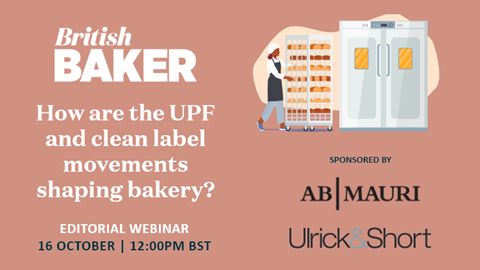
Then sign up for our free webinar! Sponsored by AB Mauri and Ulrick & Short, the webinar is titled ‘How are the UPF and clean label movements shaping bakery?’ and will take place at midday on Wednesday 16 October.
The panellists, including experts from the Federation of Bakers, Modern Baker, Mademoiselle Desserts, and The Co-op, will explore what these conversations mean for the baking industry, particularly those who have built their business models around large-scale production. They will also dive into how businesses can make the most of the conversation around ingredients and processing methods.
There will also be a live Q&A session in which the audience can submit questions to be answered by the panel. These can be submitted during the webinar or as part of the sign-up process.
Not available on the day? Register anyway! All webinars will be made available to registrants after their broadcast date, as on-demand presentations.



















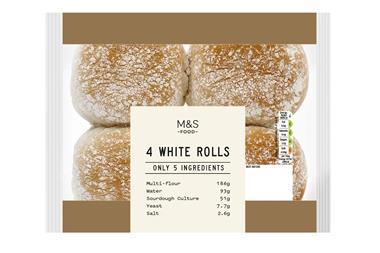


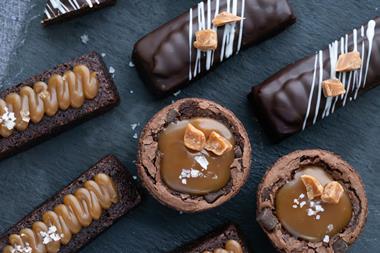


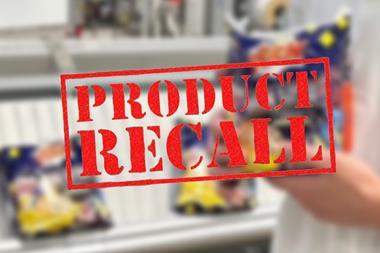

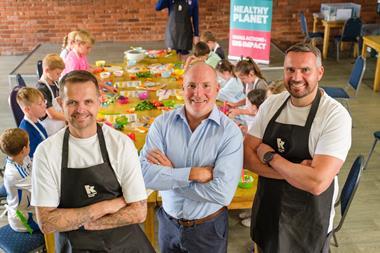

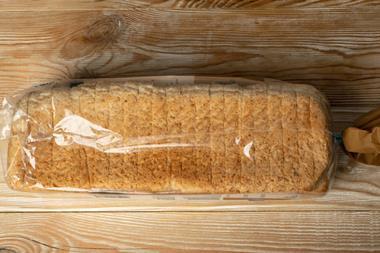
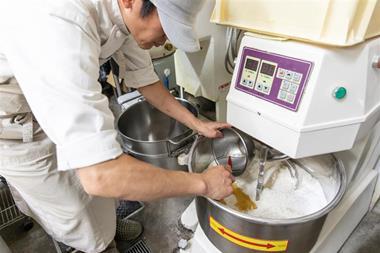

No comments yet